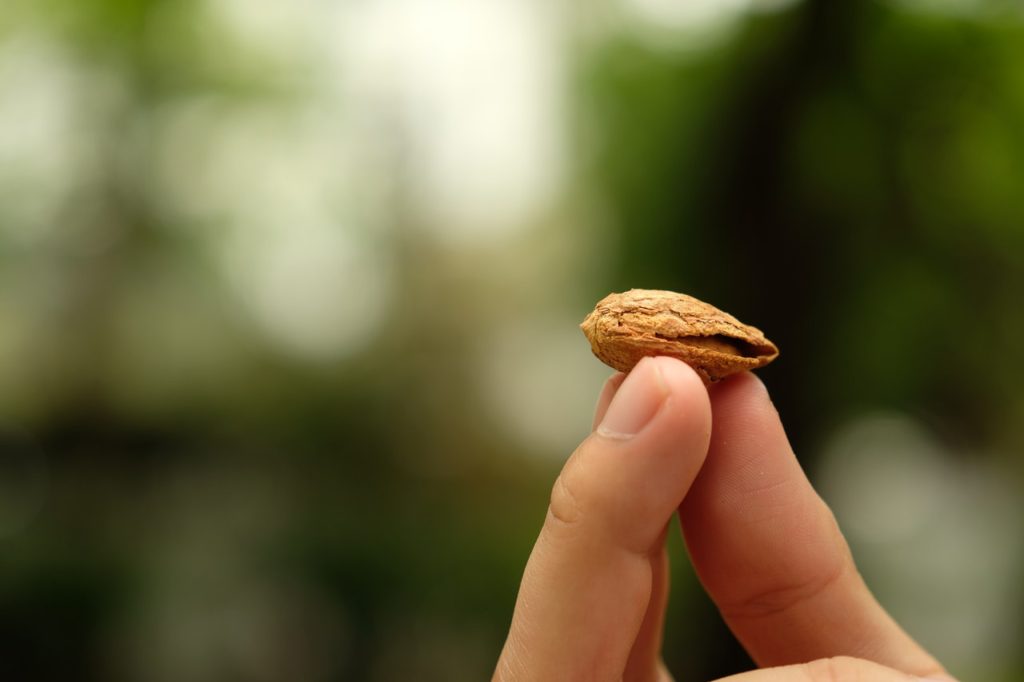Almond seeds just like any other nut, plant or fruit, Almonds can get bad, mold or rot. Some people may find it difficult to spot a bad Almond or tell it’s difference.
Consuming bad Almonds have several negative health effects. So to prevent you from suffering any adverse effects due to consuming bad Almonds, here’s how to spot a bad Almonds.

Are Almonds Seeds Or Fruit?
Almonds are generally referred to as seeds not fruits. However, it isn’t wrong to refer to them as fruits.
Where Do Almond Seeds Come From?
Almond seeds come from the tree which is native to southwestern Asia, Iran, its surrounding countries in the Levant area.
What Time Of The Year Do Almond Seeds Come Out?
Almonds seeds can grow at any time of the year, it all matters on when it was planted. The best time to plant Almonds would be the end of Winter or during Spring. Almonds are usually harvested in August, September or October.
How Do You Check If Almond Seeds Are Still Good?
To help you decide if your Almonds are still healthy enough to eat or cook, here are signs to look out for.
- Check the almond seeds for any sign of mold. If there’s mold, throw it out.
- If there’s an insect infestation in the vessel where the Almonds are kept, it’s not suitable for consumption.
- Are the Almonds dried out or looking discolored? If yes, do not consume.
- If the Almonds smell bitter or sour, they are rancid.
- Spoilt Almonds taste harsh or bitter when you eat them. 1
Why Are Almonds Seeds Activated?
Activation occurs when raw nuts are soaked in salt water solution for some time, normally from 7 hours to 24 hours. This process stimulates the early germination and sprouting process within the nut.
After soaking, the almonds are dried out in low heat to ensure the natural enzymes are not destroyed.
Almond nuts are filled with enzyme inhibitors that hinder them from sprouting in dry conditions. When you eat large amounts of almond nuts, these enzyme inhibitors can put extra pressure on your digestive system. Which can eventually lead to uncomfortable digestive symptoms like bloating, nausea and feeling heavy. Activation of almonds helps break down these inhibitors, which releases the enzymes, makes digestion easier and gentler. 2
Do Almonds Seed Grow Without Fertilizer?
There is no evidence that an Almond seed has grown without the use of fertilizer. So it’s safe to say no, Almond seeds do not grow without fertilizers.
Almonds require regular fertilizer applications throughout their growing season. Older or more mature Almonds tend to take up most of their nitrogen fertilizer in early spring, and so require spring applications and a late summer application for next year’s early growth. Here’s how to properly grow Almonds with fertilizers.
Do Almonds Seed Grow With Water?
Yes, water is extremely essential to the growth of Almond seeds. They are first soaked for 8 hours before planting. Then they are watered frequently as they grow to prevent them from drying out.
Almonds in California take upto 34% of the states water reserve. This article discusses more about Almond’s water needs.
What Kills Almond Seedlings?
There are various insects and diseases that can attack and kill Almond seedlings as well as trees.
- Botryosphaeria Canker
- Ceratocystis Canker
- Hull Post
- Shot Hole disease
Botryosphaeria Canker
Also known as band canker, this is a fungal disease that shows itself in natural openings on the tree and in pruning wounds on scaffold branches.
You see this disease more evidently particularly after a rainfall. Specific varieties of almond are more susceptible to this disease, like Padre for instance.
Ceratocystis Canker
Ceratocystis canker is also called “shaker’s disease” because it is often introduced into injuries caused by a harvest shaker. This disease is transmitted through beetles and fruit flies that are drawn to the tree’s wound.
Hull Rot
Hull rot is a big problem with the Nonpareil variety. It is spread by the wind, and affects trees that are over watered and/or over-fertilized. This disease is sometimes the result of improper harvest or shaking too soon after rain or irrigating. 3
Read more about Almond diseases and insects in this article.
What Time Of The Year Do Almond Seeds Sprout?
Almond seeds can sprout at anytime of the year depending on when they were planted.
How Long Does It Take To Grow Almond From Seed?
It can take an Almond seven to eight months to mature. Whereas, an almond tree can take as long as five to twelve years before it begins Almond production.
Citations Used In This Article
- Can Almonds Go Bad? (Canitgobad.net)
- What Are ‘Activated’ Nuts? (Goodness.com)
- Recognizing Almond Disease Symptoms: Tips For Treating Sick Almond Trees (gardeningknowhow)